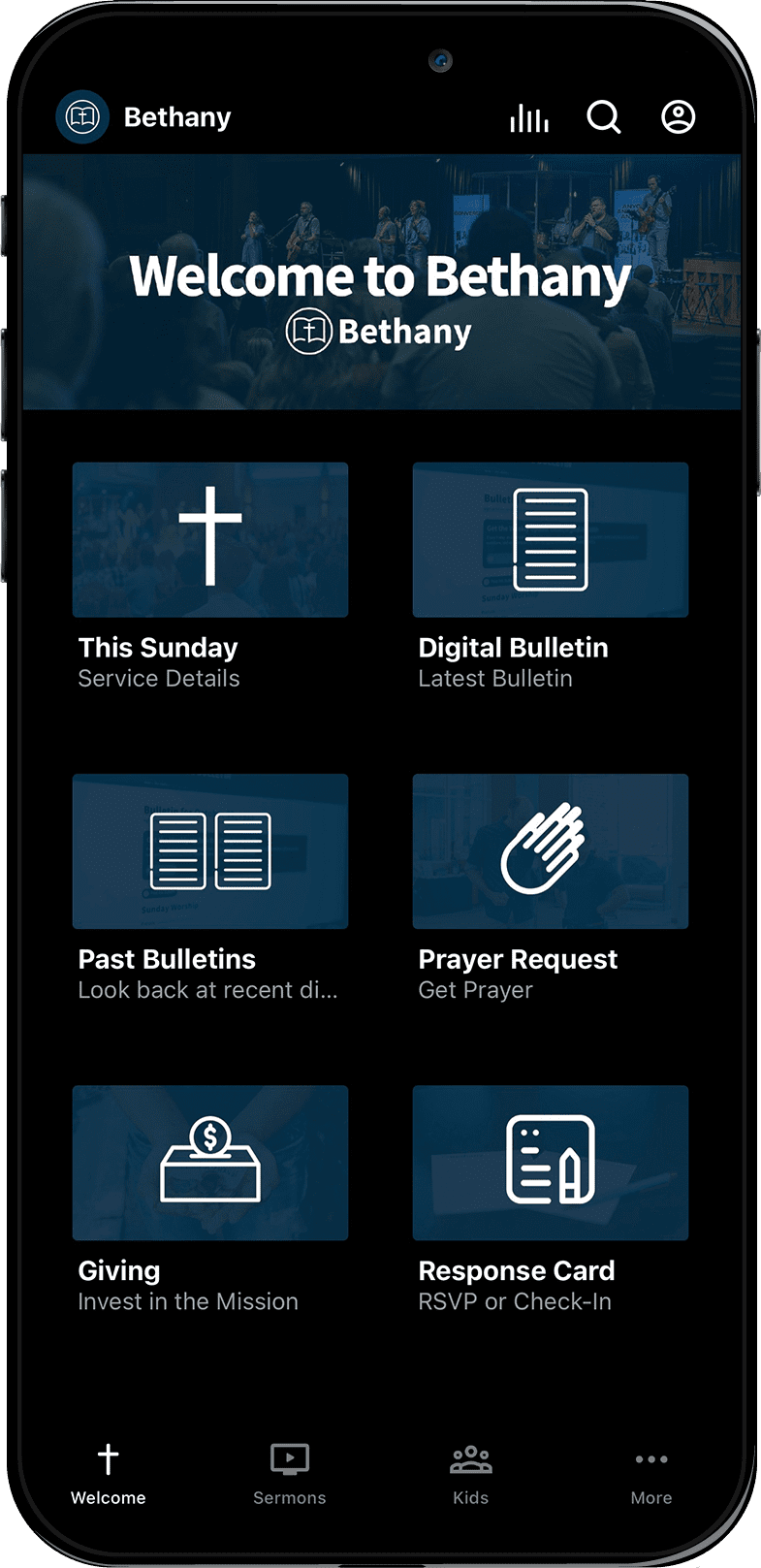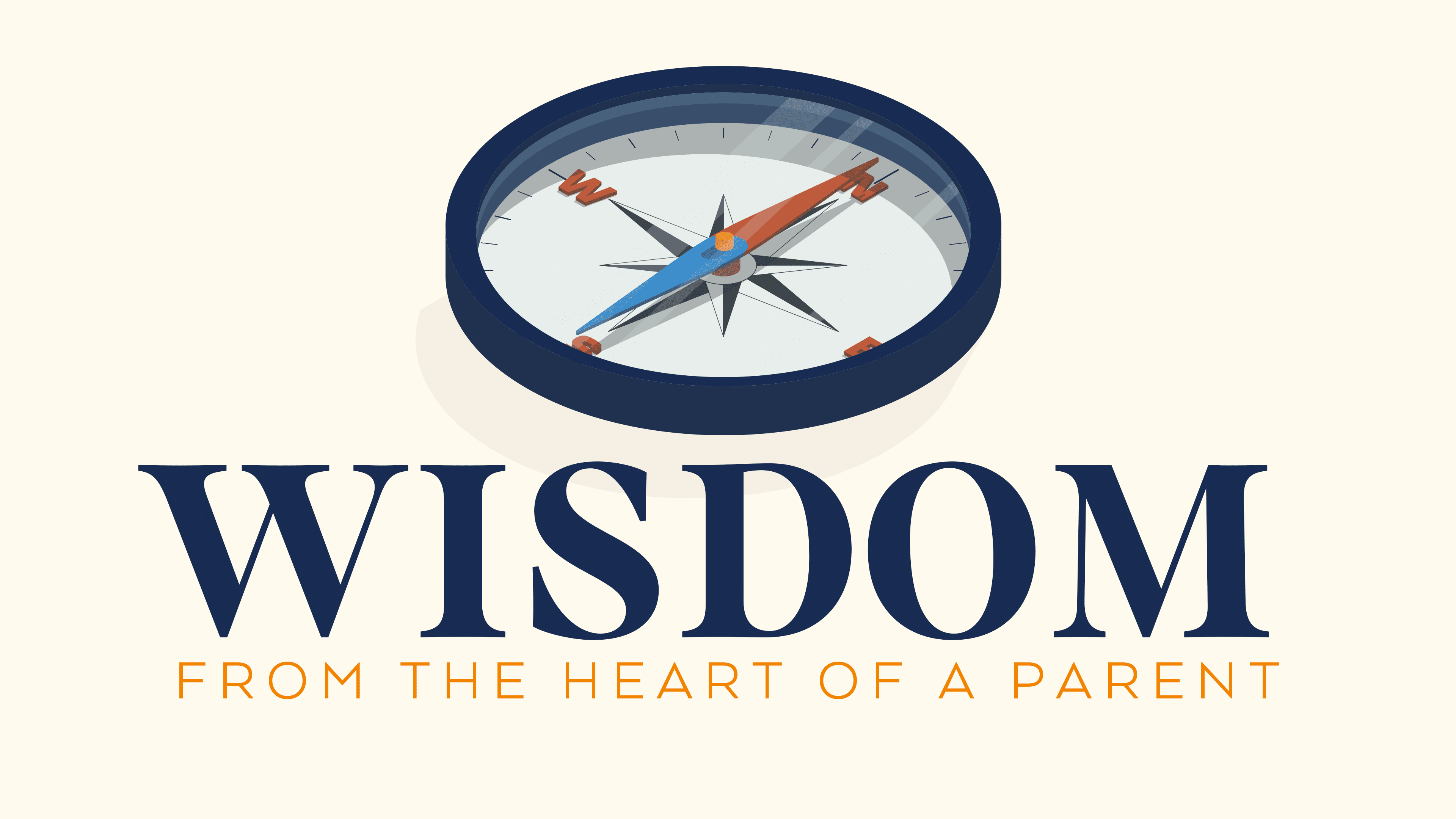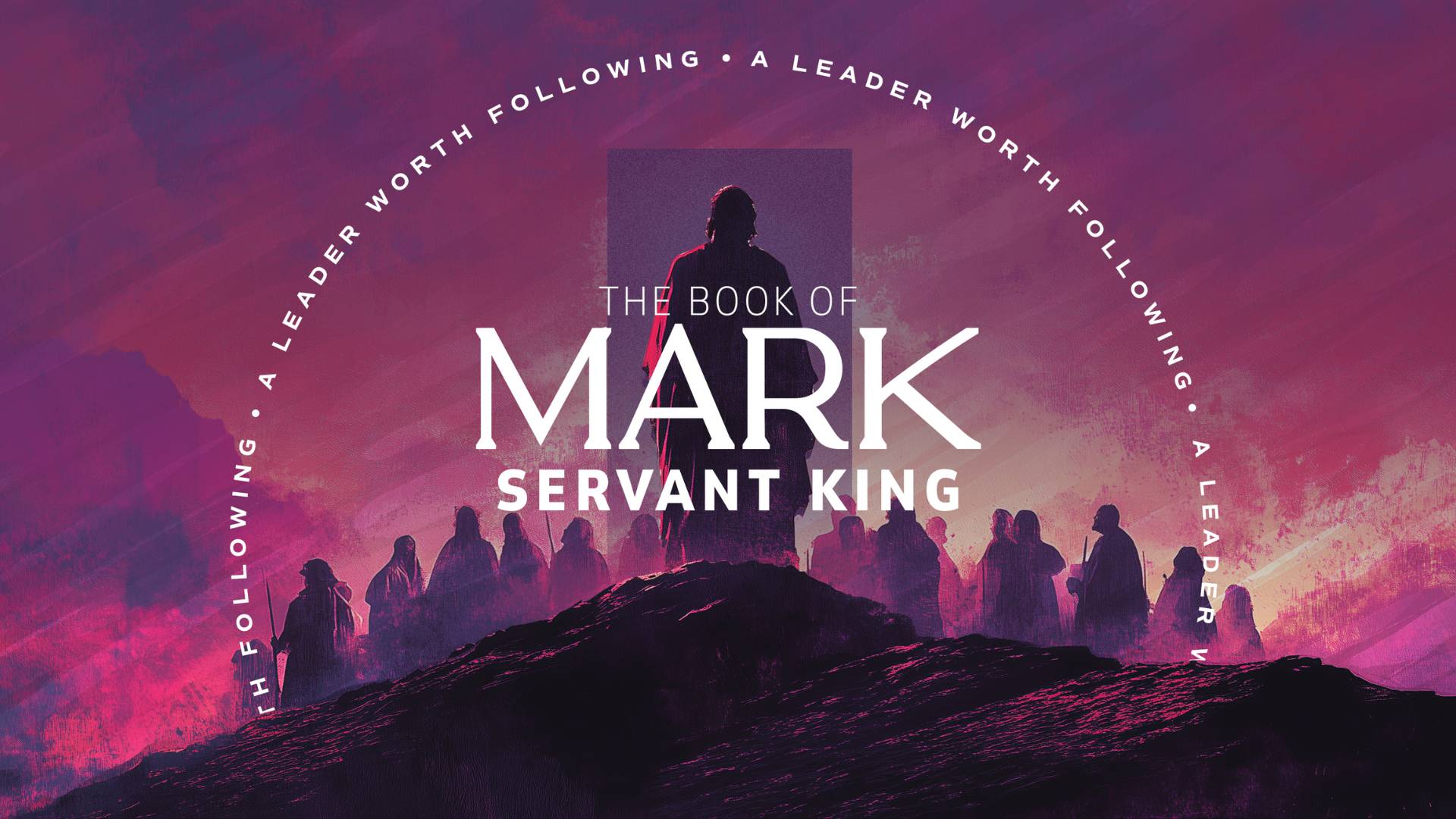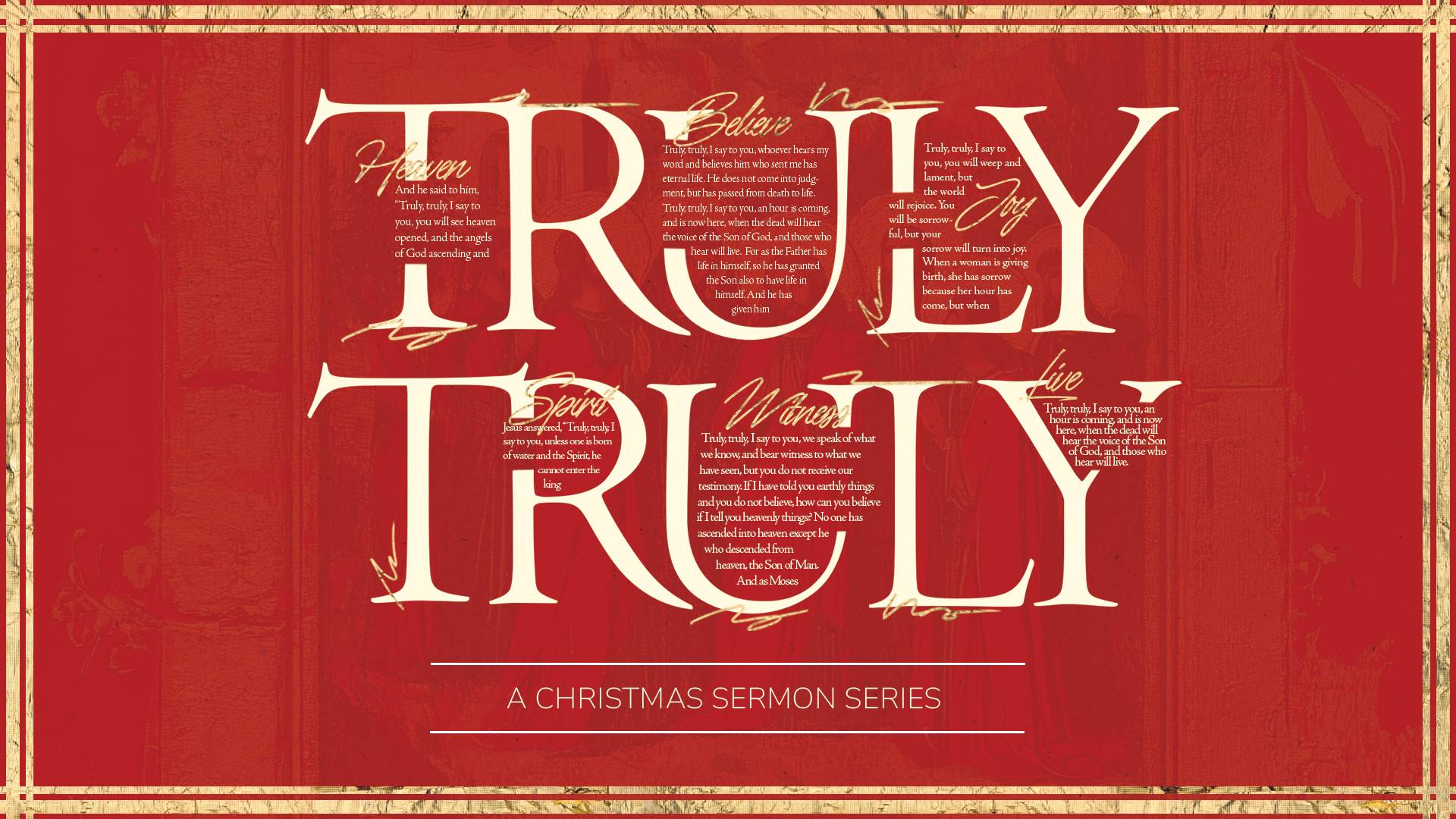Parenting Foundations
Proverbs 3:1-4 (ESV)
May 8, 2022
Dr. Ritch Boerckel
We’re going to open up our Bibles to Proverbs 3 together. For the next three weeks we’re going to be in Proverbs 3. We’re going to have sort of a mini-series. We begin this on this Mother’s Day, but it’s a series on parenting. So our focus is going to be specifically on Proverbs 3:1-4 this morning. The series title is Wisdom From the Heart of a Parent. We don’t have any wisdom in ourselves, but God is generous to give wisdom as we ask Him for wisdom and as we seek wisdom in His Word. So we’re excited about what God might do for us today in taking the wisdom in the Word and placing it in our hearts so that it becomes ours, it becomes personalized. God is a living God and He has a very personal ministry to us. Amen? (Amen!) I’ll read the first 6 verses. You can’t hardly read chapter 3 and not read verses 5 and 6. What great verses those are! We’ll look at those next week. Let’s read this together.
1 My son, do not forget my teaching, but let your heart keep my commandments, 2 for length of days and years of life and peace they will add to you. 3 Let not steadfast love and faithfulness forsake you; bind them around your neck; write them on the tablet of your heart. 4 So you will find favor and good success in the sight of God and man. 5 Trust in the LORD with all your heart, and do not lean on your own understanding. 6 In all your ways acknowledge him, and he will make straight your paths.
What precious truths these are! We want to ask that the Lord would speak to us today if you’re parents or grandparents. But even if you aren’t a parent or a grandparent, the message today, I believe, is super relevant for a number of reasons. One of those is that if you’re a believer, a follower of Jesus, God has given us a calling, a commissioning to influence one another for the sake of the Gospel. The principles we’re going to learn today are really just principles of how we can influence one another. How can we influence other people that God brings along our path, whether it’s brothers and sisters in our church, whether it’s brothers and sisters in our work place or our neighborhood? How can we influence one another to have a God-centered, God-entranced life? Our specific application is going to be on parenting today, for both moms and dads, though.
One of my favorite comic strips is Calvin and Hobbes. There is one little strip of cartoon where Calvin’s mom and dad are in bed and they’re talking. The dad is sitting up. The mom’s head is on the pillow. Mom asks, “Are you still awake too?” He says, “Mm-hmm. I was thinking. It’s funny…when I was a kid, I thought grown-ups never worried about anything. I trusted my parents to take care of everything, and it never occurred to me that they might not know how.” He says, “I figured that once you grew up, you automatically knew what to do in any given scenario.” Then the last little cartoon section has him kind of staring blankly as he says, “I don’t think I’d have been in such a hurry to reach adulthood if I’d know the whole thing was going to be ad-libbed.” (Laughter!)
Today on Mother’s Day, we begin a three-week series on parenting from Proverbs 3. The book of Proverbs provides a wealth of wisdom from God regarding all of life, but particularly on this topic of parenting. Whoever said, “Children don’t come with an instruction manual,” didn’t read the book of Proverbs. The book of Proverbs is filled with instructions for parenting that children come with to all who would open up the Book. We don’t have to ad-lib the raising of our children. God has given us wisdom to apply, to learn, to receive.
Proverbs is written by King Solomon. Remember, Solomon became king after his dad, King David, died. At the very beginning of King Solomon’s reign, God came to Solomon in the night and said, “Ask for anything and I will give it to you.” What an offer! Solomon had been thinking about the weight of responsibility of the care of this nation and rightly, faithfully, he asked God to give him wisdom and knowledge. He recognizes that he needs wisdom from God and knowledge in order to lead this vast people and to lead them to God and to lead them into blessing.
Well, God is amazingly pleased with Solomon’s request. He said, “Solomon, because you have this kind of heart that you want wisdom from me and you didn’t ask for things like possessions and wealth and honor and revenge upon those who hate you. You didn’t ask for these things. You didn’t even ask for a long life. This is the thing that most people would ask for. But you asked for wisdom. Because you asked for wisdom in order to govern your people well, I am not only going to give you wisdom, but I am also going to give you riches and possessions and honor. I’m going to give you the kind of riches, possessions and honor that no king on earth has had up to this point.” So God did that.
Some of the parenting wisdom that God gives to Solomon is recorded in our text. If you are a mom or a dad and God makes you this offer, “Ask me for anything you might need as you parent your home,” I would ask, what would you ask for? I pray that as we think of that offer, anything that we think will help us in this path of parenting, that we’re not going to say, “Lord, what I really need is a big college fund because my kids are going to grow up and they’re going to need to go to college and we are not prepared. So if you would just give us a college fund, that would kind of set us on a healthy path.”
I pray that we wouldn’t answer, “Lord, we really need a bigger house. These kids are growing up and there are not enough bedrooms. We need more space. We’re bumping into each other all the time.” I pray that we wouldn’t say, “God, I’m so tired all the time. Kids are exhausting. What I need is more physical energy. Just give me more physical energy.” Or I would hope that we wouldn’t pray, “Lord, what I really need is for my children to be designed in a way that they’re really, really smart and that they’re really, really talented and they’re really, really strong physically and that they really, really know how to relate to other people so that they’re socially skilled. That’s what I want. I want kids like that. Could you give me some kids like that?”
Solomon was right in his request and we are right if that is a request we would make. If God says, “Ask me for anything and I’ll give it to you,” we would be right to say, “God, what I need more than anything is I need your wisdom and your knowledge. That’s what I need.” God tells us in James that
James 1:5 If any of you lacks wisdom, let him ask God, who gives generously to all without reproach, and it will be given him.
So it is not as though Solomon is given an offer that God doesn’t make for every one of us. The offer made to Solomon is actually given to us in the form of the offer of wisdom. It’s sort of a blank check. God says, “Anyone who needs wisdom and anyone who comes to me for wisdom, I will give it generously in abundance.”
One of the purposes for a daily prayer life in the life of a Christian is to receive the things from God that we need for life. We need things like daily bread, but we also need wisdom. So I’m going to ask you a question at the outset of this. Do you consciously and specifically ask God each morning for practical wisdom to live your life in such a way that would provide a connection to Him and provide a path to His blessing? We have to confess that we often don’t have because we often don’t ask. We kind of assume it or we assume that we already have enough wisdom in order to get us at least through the day. We think that until we come into a particularly very difficult circumstance, we really have enough understanding to handle life as we are.
As we study Proverbs 3, keep in mind that Solomon is not qualified to write a parenting manual. Not at all! Solomon comes from a very dysfunctional family and then he will continue in his later years with this dysfunction. So why would we take advice about parenting from Solomon? The answer is that Solomon asked for wisdom and God gave it to him. Then through the Holy Spirit, God called Solomon to write that wisdom down in a book in a way that those words of wisdom provide the exact message that God is bringing to His people from that point forward, throughout the ages, until the end of the age. So there is one reason why we take advice from Solomon. It’s that God gave Him wisdom from above. So before we dig into our text this morning, I just want to ask us to pray a simple prayer unto God and to make it a habit that this would be incorporated in our daily expression of our need before the Lord. Let’s pray.
Father, please use Proverbs 3 to impart your wisdom for my parenting. I need your wisdom and I’m asking you for it. I know that I will make a mess of things if I follow my own understanding. I need wisdom from above. So open my eyes to embrace your wisdom and to embrace all the applications of your wisdom that I need to make in my life in order to help my children and grandchildren and others that I would influence, to live eternally joyful lives. Amen.
The main idea we’re going to trace through Proverbs 3:1-4 is that God gives wisdom to us in order to train children. So let’s grab hold of it and let us use it for the glory of God. As I look at Proverbs 3:1-4, I see five foundations that God provides to us so that we might live lives that impart wisdom to others, specifically so that parents, indeed, grandparents, might impart wisdom to children. Let’s read these verses together.
1 My son, do not forget my teaching, but let your heart keep my commandments, 2 for length of days and years of life and peace they will add to you. 3 Let not steadfast love and faithfulness forsake you; bind them around your neck;
Grab hold of these things!
write them on the tablet of your heart.
Internalize them.
4 So you will find favor and good success in the sight of God and man.
These words are likely written by a dad, Solomon, who has adult children at the time of the writing. A parent’s work of encouraging and influencing children is never finished in this life. It continues all the way until the day we die. But what foundations do we have to establish ourselves as instruments of influence, instruments in God’s hands to help build other lives and impact other lives for good? Well, there are five foundations that I believe are necessary to be part of our life if we are to be instruments in God’s hands. The first foundation is
1. Personal worship
Before we can impart wisdom to anyone else, we must first be a worshiper of the living God. So before Solomon requested and received wisdom to lead the nation, Solomon first committed his life to worship. We can find that story in 2 Chronicles 1. David died and Solomon is being established as king over this kingdom of Israel. The Lord is making him great and Solomon grabs hold of the people, all the assembly. They go up to a high place at Gibeon. There is the tent of meeting of God. It’s a place where the people gathered in order to worship the Lord. They met with the Lord. Solomon goes up into the tent of meeting and goes before the bronze altar of the Lord, the place where they make sacrifices to the Lord in worship, and he offers one thousand burnt offerings on it. Think of that!
So here is a king. What do I need to do as my first act as king? I need to gather all the people, all the other leaders. We’re going to walk up to Gibeon, go to the tent of meeting, and I’m going to sacrifice not just one animal for the nation, not just two, not just ten, not just one hundred, but one thousand animals are sacrificed upon the altar. How long would it take to kill one thousand animals? What is God communicating to the people by a thousand animal sacrifice service? I dare say it would take past noon to do that. (Laughter!) Here in the second service, some would get a little stressed out about the Mother’s Day lunch. (Laughter!)
One thousand animals! What is Solomon communicating? He is saying “We are going to establish my reign as king with God at the center. We are going to be a people who exalt God. That’s who we are going to be and that is my agenda first and foremost as king.” God must be central to our lives if we are to parent with wisdom. We can’t fake worship and expect God to use us as His instruments. Just as a knife’s edge must be sharp to carve a piece of wood into a lifelike hummingbird, so a parent’s heart must be devoted to Christ to be sharp enough to shape a son or a daughter into a godly man and a godly woman.
This is the foundation. This is where we start. We don’t start with the place of what do my kids need and how do they need to change? What correction do we need to give? We first start by looking inwardly and asking the question, what is the condition of my own personal walk with God? I can’t go to step one of parenting until I ask that question. It’s a question that must ever roll through my heart. Do I know God truly? In other words, am I really born again? Have I really trusted in Jesus Christ as my Savior? Have I received the gift of new life? Does the Holy Spirit dwell in me? Is there a reality to my testimony? Is that real? Ask yourself that question. Is there a reality to your testimony of your faith in Jesus that God has made you new? Then ask the question, now that God has made me new, am I continually growing? Am I continually deepening in my knowledge of Him? Am I following Him more closely?
Solomon is a man who studied his Bible. Like every faithful Jewish boy, he grew up learning the books of Moses, in particular. Deuteronomy 6 is one of those. Deuteronomy 6 is called the Shema. It’s recited daily by devoted Jews as a reminder that loving God is absolutely central to every part of life. Jesus is going to quote it in answer to a question posed to Him. Deuteronomy 6 is sort of the equivalent of the Lord’s Prayer to modern day Christians, followers of Jesus, because it is just so central. This is what we’re going to remind ourselves and think about and pray over every day. This is what Deuteronomy 6 says.
Deuteronomy 6:4 “Hear, O Israel:
That’s the Shema. Shema just means hear. Listen closely.
Deuteronomy 6:4 …The LORD our God, the LORD is one.
That’s Yahweh. He’s the covenant God. He’s in relationship with His people.
Deuteronomy 6:5-6 You shall love the LORD your God with all your heart and with all your soul and with all your might. And these words that I command you today shall be on your heart.
He’s telling these adults, these parents and grandparents, that the Word of God is going to be on your heart. Not just on your mind, but these words are going to be right here at the center of your being. Then he says
Deuteronomy 6:7 You shall teach them diligently to your children, and shall talk of them when you sit in your house, and when you walk by the way, and when you lie down, and when you rise.
Please notice the order of Deuteronomy 6. It is first personally loving the Lord your God with everything that you are. Then it is personally investing yourself in knowing the law of the Lord and obeying the law of the Lord. Then after personal worship, it is teaching that law to your children. Before we can teach our children anything of eternal worth, we must first be people of worship. We must first be devoted to love God with everything we are. We cannot give to our children what we do not possess. If you have a teenage son or daughter and you want to give them a car, you first must possess the car before you can give it. If you have a teenage son or daughter and you want to give them faith, you want to give them character, you must first possess it if you are to be an instrument in giving it, providing it.
Tragically, Solomon learned the hard way that the departure from personal worship leads to disaster in family life. In Solomon’s older years, he strayed from the wisdom that God gave him. He forsook it. Even after he tells his sons not to forsake it, he forsakes it. Solomon married 700 wives and he takes on 300 concubines. Imagine that! Many of these wives were idolaters and these wives led him into public idolatry, where he actually worshiped false gods publicly. His family suffers miserably for it. This is a nation that through the wisdom of God had grown to be so strong that it seems like no external enemy could ever possibly begin to touch it. Within one generation it fractures and breaks apart because of Solomon’s failure to keep a life of personal worship.
Many people looking at the biography of Solomon ask the question, how in the world could Solomon have done that? How could he have written Scripture? How could he have written the wisdom of the Proverbs and then depart from the wisdom? How could he have loved God so strongly at one point in his life and then have his spiritual life utterly implode upon him? God’s Word gives us an answer. It’s not as though we shrug our shoulders and say, “I don’t know how that could happen.” We do know exactly how that can happen. You see, the Bible tells us that our flesh is weak and that every person is vulnerable to being deceived. If we are not in active dependence upon God, actively opening up the Scripture, actively being led by the Spirit, then every one of us can be deceived and deceived to such a degree that at one point in our life we would almost think it unimaginable. Unless we wake up every day with a sense of our own weakness and then also a firm grasp upon Jesus Christ who is our Savior, who is our deliverer, we all will fail.
It’s often said the Christian life is not a sprint, but a marathon. That is true. What’s the difference between a person who gets disqualified from the race in the first half mile of the marathon and the person who gets disqualified from the race in the last half mile after running 26 miles of the marathon? What’s the difference between those two people? The answer is nothing. There is no difference because neither of them finished the race. What matters is finishing the race. That’s scary on one hand, but it’s scary in a good way. It makes us realize that at any point in your life, if you are 99 years of age and you’ve run the race well but you’re still alive, that means you have not yet crossed the finish line. Hold on like your life depends upon it to Jesus Christ to be your Savior, because your life does depend upon it. Solomon teaches us a sobering truth. The application is actually part of the wisdom that Solomon failed to hold onto from Proverbs 4.
Proverbs 4:23 Keep your heart with all vigilance, for from it flow the springs of life.
For the sake of our soul, for the sake of our sons, for the sake of our daughters and our grandchildren, persevere in godliness. Watch over your heart with all vigilance. Hold onto Christ, who is our deliverer. The best gift we can give to our children is a heart of worship. So the foundation for imparting wisdom is personal worship. Secondly is
2. Relational Conversations
1 My son, do not forget my teaching,
These two little words “my son” have captured my imagination as I read them. In the past, I have often sort of scurried past them, but they stuck with me this time. Perhaps it’s because the last ten days I’ve been able to spend so much time with my sons as we were on vacation together. As you look at the first chapters of Proverbs, really chapters 1-7, those two words appear over and over again. They’re found in Proverbs 1:8, 10, 15. Turn over to Proverbs 2:1. Then look at Proverbs 3:11 and 21. Look at Proverbs 4:10. They’re also in Proverbs 5:1. Let’s just stop there, because we could go on.
What do you hear in the voice of Solomon when he writes these two little words “my son”? Maybe it’s because of the perspective of having sons, that these two little words just impact me so deeply, because I hear tenderness. I hear compassion. I hear a connection. I hear relationship. I hear an affection that is so deep that it’s hard to even describe its nature. My son, my son!
I think of a few other places where these words “my son” appear in Scripture. One of them is in Genesis 22. You know the story. God tells Abraham to take his son, Isaac, up Mount Moriah and sacrifice him there. God had already told Abraham that Isaac would be the one to whom the nation would grow. So Abraham is figuring, well, if I kill him up on Mount Moriah, God has to raise him from the dead. But up the hill he goes. He and Isaac are walking along by the way and Abraham has in his hand the fire and the knife and they’re both going together. Abraham takes wood and lays it upon Isaac.
Genesis 22:7-8 And Isaac said to his father Abraham, “My father!” And he said, “Here I am, my son.” He said, “Behold, the fire and the wood, but where is the lamb for a burnt offering?” Abraham said, “God will provide for himself the lamb for a burnt offering, my son.”
You can imagine the tenderness of his heart as he tells him, “My son, God will provide a lamb.”
I think of David, whose son Absalom sought to kill him and he took his kingdom from him. Finally, David rallied with enough strength to fight against Absalom, but he tells him generals not to kill Absalom. Well, the generals know that they need to kill Absalom, so they do that. The word comes back to David that this son, Absalom, who had been so terrible to his father with such dishonor that it’s almost unspeakable, had been killed. But David is moved with sadness and with grief and he weeps aloud and he cries out
2 Samuel 18:33 And the king was deeply moved and went up to the chamber over the gate and wept. And as he went, he said, “O my son Absalom, my son, my son Absalom! Would I had died instead of you, O Absalom, my son, my son!”
It’s a heart of relationship, the heart of deep affection.
I also think of Mark 12, where Jesus tells the story of the miserable tenants who didn’t pay their rent. He sends messengers on ahead and they beat the messengers and they treat them roughly.
Mark 12:6-9 He had still one other, a beloved son. Finally he sent him to them, saying, ‘They will respect my son.’ But those tenants said to one another, ‘This is the heir. Come, let us kill him, and the inheritance will be ours.’ And they took him and killed him and threw him out of the vineyard. What will the owner of the vineyard do? He will come and destroy the tenants and give the vineyard to others.
You see, these words “my son” indicate the kind of affection where of course that’s what the land owner is going to do. He’s going to be enraged with justice over the murder of his own son. Of course all of this parable is a parable of God. It’s pictured for us in John 3.
John 3:16 “For God so loved the world, that he gave his only Son, that whoever believes in him should not perish but have eternal life.
When Solomon writes “my son,” he writes from a position of tender, warm, intimate relationship. So here is the truth that is foundational. Wisdom is best imparted through relationship. So let’s pay attention to building the relationship! We would like to just be able to download some good information, than live it out. But God says the relationship that we have with our children, our grandchildren, and with others, is so vital to being people of influence.
As Christian parents, we want so badly to exert positive influence upon our children. How do we do that? There are a number of illegitimate means that we might employ or be tempted to employ to influence our children. We might use manipulation. We might use threats. We might use intimidation or various means of control. These means of influence always contradict God and His Gospel. They are never used by God to influence us. They’re never healthy. But there are at least two legitimate means of influence. That is first the influence of authority and secondly, the influence of relationship.
God gives parents authority over young children for good reason. Young children need parental authority to keep them from harm. Young children are too vulnerable to all the dangers. So sometimes the words “because I said so” are necessary. So it’s not as though those words are off limits. “Because I said so,” sometimes is necessary. I just spent seven or eight days with four little grandchildren. The biggest objective I had in those eight days was to see that they didn’t kill themselves. (Laughter!) You just have to say, “Because I said so. Right now, this is the answer.”
Now, that’s using authority to keep our children from harm. Yet, even in very young children, the influence of relationship is always the more powerful influence. As children grow into adulthood, the influence of relationship is often the only influence that parents have. This ought not to trouble us. It should encourage us. We want our influence to be born out of our children’s belief that we love them and that we really do have their best interests in mind. We don’t wish to influence them in order to make our lives more blessed because we’re selfish and we want them to be our little servants. We wish to influence them because we want their life to be blessed.
As children grow older, parents are wise to use the Authority card less and less and to use the Relationship card more and more. When parents pull out the Authority card on teenagers and sometimes even young 20’s who are yet dependent and living in the home, we expend relational currency. If we are not careful to make frequent deposits in the relationship bank, we will one day pull out the Authority card and discover we have no currency to draw upon and that card will have no effect or no power upon our children or grandchildren. We might be surprised by this, but we shouldn’t be. Again, this is not to suggest that the Authority card is always inappropriate for teenagers. But we know that when we use it, we are using a very, very weak hand.
How does Jesus lead us to a life of wisdom and blessing? He does so by telling us of His love for us. We are led to commitment and devotion to God by His mercies. He first convinces us that He really cares for us and that we can trust Him and that He has our blessing in view, and then He directs our lives. Jesus possesses all authority. He is God! He actually has a right to use that authority. He wouldn’t be wrong because He possesses all authority in heaven and on earth. Yet Jesus, in leading us, uses the Relationship card to influence us toward a life of obedience and blessing.
I think of John 14. Just think with me briefly, here. It’s the evening before Jesus is going to go to the cross. He gathers His disciples around. He wants to influence them this one last time before He goes to the cross. In John 14, He says this.
John 14:1 “Let not your hearts be troubled. Believe in God; believe also in me.
He’s saying, “Trust God. Trust me!” He goes on to tell them how much He loves them. He says
John 14:2-3 In my Father’s house are many rooms. If it were not so, would I have told you that I go to prepare a place for you? And if I go and prepare a place for you, I will come again and will take you to myself, that where I am you may be also.”
“This is not about leaving you in a bad spot. This is actually about your blessing. I love you and I will continue to love you even after I go to the cross.” He goes on to say
John 14:13-14 Whatever you ask in my name, this I will do, that the Father may be glorified in the Son. If you ask me anything in my name, I will do it.
In other words, He’s saying, “I have a heart of generosity towards you. I care so much for you.” But then He says this.
John 14:15 “If you love me, you will keep my commandments.
What is Jesus doing there? This is not a kind of emotional manipulation where Jesus says, “If you disobey me, you’re going to make me cry. You don’t want to make me cry.” These guys, these disciples already love Jesus because Jesus has demonstrated to them for three years how much He loves them. Jesus is tapping into the influence of relationship to help them live the kind of life that they already have decided to live. He says, “You enjoy my love, don’t you?” Yes. “You enjoy loving me back because I loved you so much first.” Yes. He says, “If that is so and if you care about the relationship, continue to enter into the joy of that relationship by obeying my commandments.”
So again, He is giving them counsel. He is giving them commandments. He is giving them direction not on the basis of His authority. He could have said, “I’m Jesus. I’m God. I’m the Lord. Simply obey me because I have the right to be obeyed. I have the authority to be obeyed.” But He doesn’t. He goes into all these statements about how much He loves them and cares for them. He says, “If you love me, if the relationship means something to you and I know it does, then feed that relationship by obeying my commandments.”
Here are the applications for us on this foundation. Invest in building relationship with your kids. It is your love for them and not your parental position that builds relationship. Remember that! It’s your active love for them. Parental position is precious. It’s divinely given. It’s special. But it’s your love for your children that builds relationship.
Secondly, do not assume that your children already know you love them. You might say, “But wait a minute! I’ve communicated all my life that I love them. I’ve communicated in words. I’ve communicated in so many ways in my sacrifices and my time and my energy. How could they not know that I love them?” Here’s the question. Have you ever wondered if God loves you? Yes. Why? How could you not know God loves you? There is not one day where He hasn’t demonstrated His love in a thousand ways to us. Yet, God says, “I want you to read my Book and open up my Book so that you can hear my voice, hear my Spirit say to you, I love you. In fact, I’m sending my Spirit, Romans 5 says, to pour out my love into your hearts so that you will know that I love you.” It’s on the basis of relationship that we connect to God in worship. It’s on the basis of His love. So don’t assume that your children already know you love them. Tell them and then tell them again and tell them one more time. Tell them you love them with your words. Tell them you love them with your time. Tell them you love them with your actions. Tell them you love them by listening to them and believing that they actually have something really important to say.
The third application is as your children grow, rely more and more on your relationship rather than your authority to influence them for godliness of life. Trust that God will use that in a powerful way. I believe He will.
Finally, use your relationship to talk about God with them in both formal and informal ways. This is sort of what Deuteronomy 6 is saying. It says talk of them. He doesn’t just say teach them. He says talk of them. Let this be a conversation of God’s Word and God’s Law when you sit in your house, when you walk by the way, when you lie down and when you rise up. God is saying, “I’m going to give you hundreds and hundreds of teachable moments. Use them all.”
Talk about the Gospel when your son or daughter loses a basketball game. Talk about the Gospel when they win a basketball game. Talk about the Gospel when there is a conflict in school and somebody has been really mean to them and they have slandered them. Talk with them. Converse with them when they get sick. Talk with them when a sparrow hits the window and dies. Talk with them when the Supreme Court is found to perhaps rule against Roe vs. Wade and many are upset. Talk with them when a biological man wins an NCAA swim tournament. You see, we never ever, ever run out of teachable moments. But if we don’t converse with our kids, we won’t have influence. So this basic foundation is relational conversations.
3. Biblical Convictions
1 My son, do not forget my teaching, but let your heart keep my commandments,
I love that! He says my teaching and my commandments. He is not sort of a control freak that says “I made up these rules and these are dad’s rules.” He is a man who fears the Lord. Proverbs 1:7 tells us that. He is a man who has opened up the Bible and found his commandments from the Scriptures. So he is just simply repeating. They are his commandments not in the sense that Solomon originates these teachings, but they’re his commandments because Solomon has received these teachings from the Lord, from the Scripture, and now personalized them to say these are God’s commandments but now they’re mine because I have embraced them. That’s what he is saying there. He is showing us a way to influence our kids powerfully through this one resource for truth. That resource for truth that we have that is the only reliable, sustainable, eternal source of truth is God’s Word. It’s Scripture. As parents, he is modeling for us, let’s teach the commandments of the Lord and call our kids not to forsake those commandments because God’s Word is truth. His Word has His will that gives life to everyone who receives it.
This past week I had some time with four sweet little grandkids. One of them, Malakai, who I talk about enough, we were watching a video of John Newton. It’s on RightNow Media that we offer to anyone. If you don’t have it, you can call the church office. We can get access to you. It has a whole bunch of Christian videos of all kinds. We were watching about John Newton, Amazing Grace. His life begins just in utter rejection and rebellion against God. It’s one of the darkest lives ever to be lived. He was a man full of cursing and full of anger. He was a man, if you know his story, who was a slave trader who ultimately became saved, and then a pastor and wrote the words, “Amazing grace, how sweet the sound that saved a wretch like me.”
In this video, it shows a ship going to the shores of Africa, black folks getting rounded up, put on the ship, and then brought back. I could see Malakai was just in horror. He was looking at that and asking what is happening? I told him John Newton was part of a great wickedness. He was part of a slavery, which is where people are taken and they’re sold. He asked, what does it mean to sell? I told him that means that if you have a piece of property, like if you had a horse, you could sell it to someone and then that horse is that person’s property. That’s what it means. It means that people were sold like property. Sweet little Malakai looks at me and he was shocked!
I thought first a number of things. Number one, here is the conscience of a little boy who hasn’t yet been hardened by his culture. He is a little boy who is learning the Word of God. His conscience is being sharpened and he immediately sees the evil. We ask the question, how is it that godly people living in that time, so many of them didn’t see that evil? How come not everybody? The answer is that their consciences and their lives were deadened because they listened to other voices of truth other than Scripture. Now, I don’t say this in order to say look how bad they are. Let’s just spend some time to condemn them. I say that because we, each of us, have to ask the question, what am I not seeing because I’m living in a culture that is against God? What am I not seeing, that a little boy, if they saw it and heard about it without having cultural influence would ask, how could God’s people think that way? Then we talked more about the Scriptures, about how every person is made in the image of God. I brought him to the Scriptures.
I’m just saying this is what we do. We have these conversations where we open up the Bible and we bring the Scriptures to our children and to our grandchildren. The foundations are personal worship, relational conversations, biblical convictions to teach diligently the Word of God. It is our only source of truth. It’s not my opinions. It’s not my thoughts. It’s not that nothing else has any truth in it. It’s just that the Scriptures alone have life.
4. God-centered vision
We’ll be brief, here.
4 So you will find favor and good success in the sight of God and man.
What is the vision that Solomon has for his children? Here it is. It’s captured. It’s that they would have a life that is entranced by God and that they would be pleasing to God. He says, so that you will find favor with God, first. Then also as a result of your favor with God, you will be in a place where you can be a blessing to other people. The vision Solomon urges parents to have for their children is a life that first is devoted to God and then is honorable among people.
The goal of our teaching is our children’s eternal good more than their temporal good. This is the vision. As we say, “What vision do I have for my children?” foundationally, we really want to be a people whose foundation is more than anything, I want them to know God. I want them to live a God-entranced life, a life devoted to God, a life that brings glory to God. If I seek for them first the kingdom of God and His righteousness, I know everything else will be added unto them.
Parents and grandparents, what is your vision for your children’s lives? Is our children’s devotion to God our primary first driving concern? Do we think over this vision more than anything else we have for our kids? If we spend more time thinking about our kid’s grades, their athletic accomplishments, their social well-being, their physical health, their future job, their future spouse, the development of their talents or hundreds of other concerns, we will miss the mark of bringing a life of joy and blessing to them. One vision rules them all, the vision of a God-entranced life.
There is an early church leader named Cyprian. He was from North Africa. He said, and I love this, that a parent that is more concerned about the physical and temporal needs of his child than the spiritual needs of his child, is like a man watching his dog drown and his child drown at the same time and then choosing to save the dog. That’s a pretty powerful picture, isn’t it? That’s the truth. We’re seeking out their eternal good. It’s not as though temporal good has no value. It’s that it only has value if this first matter of eternity is set.
Well, Solomon wrote two psalms. One of those is Psalm 127. We’ll get back to this next week. But this is what he says.
Psalm 127:1 Unless the LORD builds the house, those who build it labor in vain. Unless the LORD watches over the city, the watchman stays awake in vain.
As parents and grandparents, we have work to do. God sets work in front of us. But we are completely dependent upon the Lord for any positive results. There is no one plus one equals two in parenting or grandparenting. If we have positive results it’s because the Lord smiled upon that. If we don’t have positive results, it doesn’t mean that we have somehow failed. It means that we’re waiting upon the Lord. We’re still pursuing, still praying, still depending, even as the prodigal father was with his son.
Psalm 127:1 Unless the LORD builds the house, those who build it labor in vain.
Isn’t it a wonderful thing that God loves to involve Himself with building our homes? That is a most comforting truth for a mom and dad to know.
Latest Sermon Series
Get the App
Watch the Latest Sermon
Get access to each week's sermon right on your phone. Look up sermons & series.Get the Digital Bulletin
Get the latest updates, events, & family news by checking out the digital bulletin.

- 1Watch the Latest Sermons
- 2Get the Digital Bulletin
- 3Tell us how to pray for you
- 4Get updates and notifications









